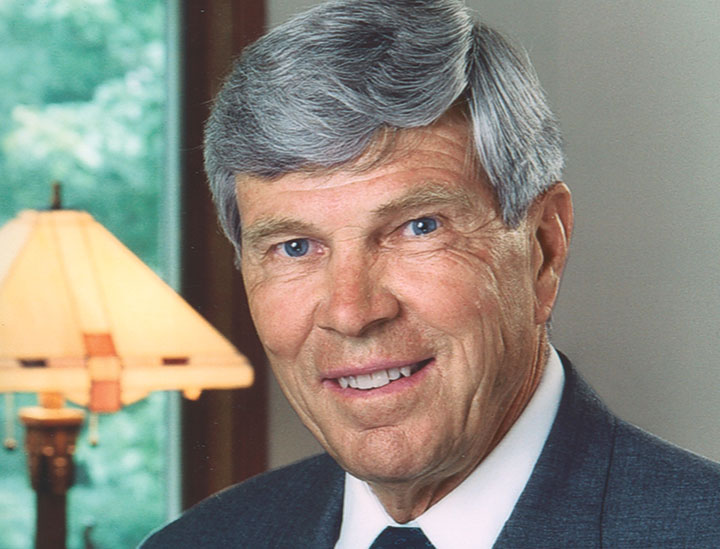Q&A: James McPherson on Understanding History Through Empathy
Professor emeritus James McPherson, the Pulitzer Prize-winning author of the 1988 Civil War history Battle Cry of Freedom, spoke with PAW about the controversy surrounding Confederate monuments.
Should Confederate monuments be removed?
I can certainly sympathize with a point of view that people who fought to break up the United States with the purpose of preserving slavery should not be celebrated. But it happened. Many of these monuments, which were put up from about 1890 to 1920, illustrate the “Lost Cause” mentality of the Confederacy. I think that that needs to be understood as part of the mythology of the Civil War — and people live as much by myths as by reality. If you try to wipe that out, you’re shortchanging an important part of our understanding of history.
As a historian, I don’t like the idea of banning statues. I think the better way would be to leave most of these memorials where they are with some kind of explanation of who put them up, and when, why, and what they stand for.
Weren’t many Confederate monuments erected in the 1950s and ’60s to resist desegregation?
That is certainly true about the widespread use of the Confederate flag. But most of the monuments you will see in courthouse squares across the South were put up much earlier than that.
Some point out that there are no monuments to Nazis in Germany today. How is this different?
For one thing, ours was a civil war and not a foreign war. For another, the occupation of Germany went on a lot longer than the federal occupation of the South during Reconstruction. You wouldn’t have found any of these monuments going up while there were still federal troops there.
How do you feel about Yale renaming its residential college named for John C. Calhoun, who supported slavery but died before the Civil War?
I have mixed feelings about that. Again, you’re trying to erase part of the history of the institution. Calhoun had been a student at Yale; he was a very prominent American, a senator, and vice president. On the other hand, what he stood for was repugnant.
So I can see both points of view. I suppose that is part of my training as a historian. Historians are supposed to see the points of view of actors in history, even if they disagree with them. They are part of the historical story.
There is always a temptation, and I have certainly been in danger of succumbing to it, of judging the past by the standards of the present. I think historians need to empathize with people of 100 to 150 years ago, even if we don’t like what they stood for, in order to understand what they stood for and why. It’s easy for us to say that these people were evil — look at what they believed. But they were products of their time, and their beliefs were widely shared.
Interview conducted and condensed by M.F.B.












4 Responses
Norman Ravitch *62
8 Years AgoThe voice of reason! Rare...
The voice of reason! Rare even here.
Clark Irwin *78
8 Years AgoMixed Motives in the Civil War
Two of my great-grandfathers were wounded while fighting in Pennsylvania infantry regiments at Antietam. I am self-interestedly pleased that they survived, but I do not automatically assume that they or Northerners in general were fighting to end slavery. For one thing, there is ample evidence from Union soldiers’ letters and diaries that many of them had no use for the abolition movement. For another, there is the fact that Congress – minus the votes of absent Southern members – did nothing to alter the legal status of slavery in the border states of Missouri, Kentucky, Maryland, and Delaware during the war.
Conversely, there is nothing incredible about the proposition that many Confederates were motivated mainly by a desire to defend their home states and to defend the right to secede – a course not forbidden to states by the Constitution, and presumably protected by the Ninth and Tenth Amendments until the 1869 Supreme Court split decision in Texas v. White 74 U.S. 700. There were mixed motives and racism on both sides, and promoting historical understanding of context, as professor emeritus James McPherson suggests (Life of the Mind, Dec. 6), is a more constructive approach than orchestrating frenzies of statuary exorcism.
Jim Henry
8 Years Ago“Sounds” good and I...
"Sounds" good and I disagree.
Norman Ravitch *62
8 Years AgoGood for McPherson! I did...
Good for McPherson! I did not expect such common sense.